Collective Response: Canada Research Coordinating Committee Progress Report 2020-21
The Honourable François-Philippe Champagne, P.C., M.P.
Minister of Innovation, Science and Industry
© Her Majesty the Queen in Right of Canada,
represented by the Minister of Industry, 2021
Cat. No. CR1-17E-PDF
ISSN 2563-7444
On this page
- Canada Research Coordinating Committee at a glance
- Canada Research Coordinating Committee strategic priorities
- Message from the Ministers
- Message from the Chair
- Priority: Supporting Canada’s research response to COVID-19
- Priority: Increasing engagement in interdisciplinary, international, high-risk / high-reward, rapid-response research
- Priority: Supporting early career researchers
- Priority: Enhancing interagency cooperation on international research
- Priority: Strengthening Indigenous self-determination, leadership and capacity in research and training
- Priority: Strengthening equity, diversity and inclusion in research
- Annexes
If there was ever a year when a collective response was needed to support Canada and its research community, it was 2020-21.
The COVID-19 pandemic disrupted research and, at the same time, demanded more—from all of us, urgently.
Canada’s federal research funding agencies and departments came together on the Canada Research Coordinating Committee to sustain vital activities across the country, while working toward a better tomorrow.
Canada Research Coordinating Committee at a glance
The Canada Research Coordinating Committee (CRCC) is a senior strategic forum that brings together the executive heads of key agencies and departments to advance collective priorities and coordinate federal research funding. Through the CRCC, members share information, build consensus and make decisions that strengthen Canada’s research enterprise—fostering world-leading research and advancing the country’s social and economic well-being.
Committee members

Alejandro Adem
Chair, 2021; Vice-Chair, 2020
President, Natural Sciences and Engineering Research Council
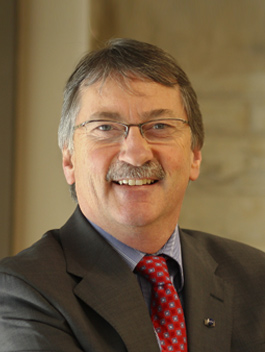
Ted Hewitt
Vice-Chair, 2021
President, Social Sciences and Humanities Research Council
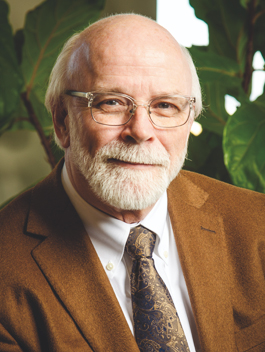
Michael Strong
Chair, 2020
President, Canadian Institutes of Health Research
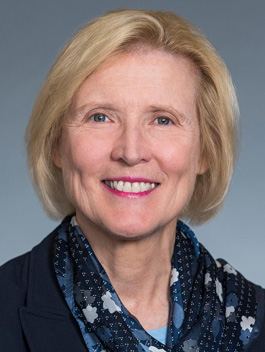
Roseann O’Reilly Runte
President and Chief Executive Officer, Canada Foundation for Innovation

Stephen Lucas
Deputy Minister, Health Canada

Simon Kennedy
Deputy Minister, Innovation, Science and Economic Development Canada

Iain Stewart*
President, National Research Council Canada
*Also participating at CRCC meetings in 2020–21, NRC Acting President Roger Scott-Douglas (September to December 2020) and Interim President Mitch Davies (December 2020 to October 2021).

Mona Nemer
Chief Science Advisor, Office of the Chief Science Advisor of Canada
Canada Research Coordinating Committee strategic priorities
| COVID-19 response and recovery | Interdisciplinary, international, high-risk / high-reward, rapid-response research | Early career researchers |
|---|---|---|
Strengthen Canada’s COVID-19 response and recovery by supporting the research community, funding rapid-response research, and enabling forward-looking, evidence-based decisions in government. |
Foster world-leading discovery and innovation through the New Frontiers in Research Fund, encouraging Canadian research teams to take risks, meet new challenges, push boundaries and lead transformative projects with partners at home and abroad. |
Develop the next generation of talent and encourage innovation by engaging early career researchers in Canada’s research ecosystem. |
| International cooperation | Indigenous research and reconciliation | Equity, diversity and inclusion |
Position Canada as a valuable partner in global research and innovation. |
Advance reconciliation and help build Indigenous research capacity by working with Indigenous communities to develop and support new models for Indigenous research and research training. |
Achieve excellence by engaging the full pool of diverse research talent in an equitable and inclusive research ecosystem. |
An integrated calendar of funding opportunities
To make it easier for research teams to work together across disciplines, last year Canada’s federal research funding agencies and the Canada Foundation for Innovation (CFI) created an integrated calendar of funding opportunities on the CRCC webpage. The calendar gives a single view of funding opportunity deadlines, and provides links to application information for jointly administered and agency-specific Canadian Institutes of Health Research, Natural Sciences and Engineering Research Council, Social Sciences and Humanities Research Council and CFI programs—making opportunities easier to find for research administrators and research teams in all disciplines.
Message from the Ministers

The Honourable François-Philippe Champagne, P.C., M.P.
Minister of Innovation, Science and Industry
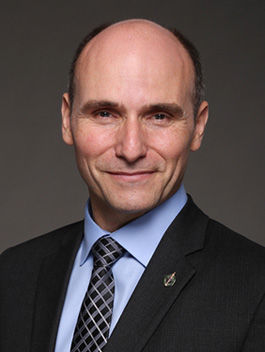
The Honourable Jean-Yves Duclos , P.C., M.P.
Minister of Health
On behalf of the Government of Canada, we are grateful to all the researchers and innovators across the country for their vital, collective response during the COVID-19 pandemic. Throughout this crisis, Canadians depended on research communities to understand the virus and its effects, to develop solutions to the many unprecedented medical, technical, and social challenges we faced, and to lead our country into recovery.
Today, Canada continues to look to our researchers and innovators to collaborate and advance Canadians’ health and well-being. We are confident in our prosperous future with the vast innovations trailblazing a path forward for a healthier, stronger and more equitable country for all.
We also wish to thank the members of the Canada Research Coordinating Committee (CRCC), and their organizations, for devoting their talents to aid the collective recovery efforts. From coordinating a rapid research response, to adjusting programs, to overseeing federal support to sustain the research enterprise, the CRCC supported Canadians throughout this difficult period of uncertainty.
While responding to the pandemic, the CRCC continued to look to a brighter future in tremendous ways: by working with Indigenous and community partners to help build Indigenous research capacity; by creating an inclusive research community and engaging emerging innovators; by tackling complex interdisciplinary challenges; and by positioning Canada as a valued partner in the international research ecosystem, to name a few.
This report highlights the key contributions of the organizations brought together on the CRCC over the past year. As we reflect on these accomplishments, we look forward to continuing to work with CRCC members in the year ahead as we seek to improve health, well-being, and prosperity for all Canadians.
Together with the Canadian research community, we will build back better.
Message from the Chair

Alejandro Adem
Chair, Canada Research Coordinating Committee (2021)
In all manner of ways, in all parts of the country, the COVID-19 pandemic required the Canadian population to come together to address the country’s urgent needs—while keeping an eye on how the world might look when coming out of the crisis. Working together closely, the agencies and departments represented on the Canada Research Coordinating Committee (CRCC) mobilized rapidly to support Canada’s research enterprise.
In the first months, member agencies and departments provided funding to mobilize rapid-response research, extended application deadlines, topped up supports, made administrative adjustments, and managed emergency funds to mitigate the impacts of the pandemic and help sustain Canada’s research community.
On the CRCC, we broadened the scope of our collaboration to integrate perspectives from the Public Health Agency of Canada and the International Development Research Centre in “CRCC+” meetings. We championed a new way to advance evidence-informed decision making by linking government and the research community through the CanCOVID network and the Office of the Chief Science Advisor. We shared some of the first lessons learned with researchers, administrators and policy makers at the virtual Canadian Science Policy Conference 2020.
We can take pride in this collective response—and in the resilience shown by the Canadian research enterprise, and the staff of all member organizations, in the face of this crisis.
The pandemic has reinforced the importance of science, and the significance of our work for the Canadian population. It has created complex technological, organizational and societal challenges that demand action informed by research in all disciplines, engaging the research community in all sectors across Canada and abroad. Our collective response has rarely been more important, and will be essential to the coming recovery.
I look forward to working with my colleagues across government and across Canada’s research communities as we take on the challenges ahead.
Alejandro Adem
Chair, Canada Research Coordinating Committee (2021)
President, Natural Sciences and Engineering Research Council of Canada
Priority: Supporting Canada’s research response to COVID-19
Critical funding in a time of need
When the pandemic shut down Canadian universities and health research institutions and put the productivity and sustainability of research teams at risk, CRCC members came together to provide strategic oversight for the Canada Research Continuity Emergency Fund (CRCEF).
The Government of Canada announced the creation of the CRCEF in May 2020 and established the CRCC as the program’s steering committee. The temporary emergency response program provided wage support for research personnel who did not qualify for the Canada Emergency Wage Subsidy. It also reimbursed costs related to maintaining essential research-related commitments, helping the research community stay ready to ramp projects back up once public health restrictions were lifted. In the span of seven months, the CRCEF, through the Tri-agency Institutional Programs Secretariat, delivered $416 million to approximately 32,000 individuals engaged in research, and helped ensure the continuity of 22,000 projects.

CRCC members participated in a CSPC plenary session, which focused on Canada’s research response to COVID-19 and Canada’s recovery. Left to right, top row: Michael Strong, Roseann O’Reilly Runte, Roger Scott-Douglas. Middle row: Mona Nemer, Ted Hewitt, Alejandro Adem. Bottom row: Uzma Urooj.
Broad and inclusive support
Institutions across Canada could use CRCEF funds to support research-related personnel whose salaries were paid, in whole or in part, from nongovernmental sources and cover extraordinary direct costs needed to maintain or ramp up research, regardless of their funding source. Three rounds of funding were held, with the first deadline in July 2020. A fourth round was added in November 2020, in response to stakeholder feedback and evidence of the pandemic’s continuing effects on research.
To ensure the emergency funds were distributed equitably, recipient institutions were asked to form internal committees that reflected the diversity of Canada’s research community. They developed equity, diversity and inclusion (EDI) strategies to reduce the influence of unconscious bias and systemic barriers in the allocation of funding.
Mounting and delivering a program on such a scale, so quickly, required a dedicated and experienced team drawn from across the federal research funding agencies. Team members were pulled together on short notice to design and launch the program, facilitate rapid review of applications, prepare and update web content, hold virtual engagement sessions in both official languages and respond to hundreds of institutional questions and concerns in a timely manner.
Protecting research excellence
32,000 people
engaged in research received CRCEF support throughout the year
Throughout the year, the CRCEF supported 126 organizations and their research staff and projects, sustaining talent and knowledge that are critical to Canada’s well-being and competitiveness in the global, knowledge-based economy across the disciplines of health, social sciences, humanities, natural sciences and engineering.
+/- 32,000 research-related personnel received wage support
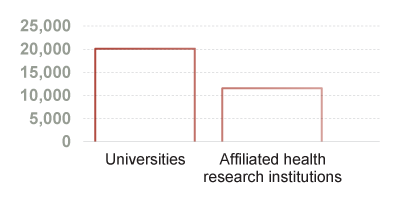
Description of graph
| Institution | Number of research-related personnel that received wage support |
|---|---|
| Universities | 20,000 |
| Affiliated health research institutions | 12,000 |
The Canada Research Continuity Emergency Fund provided wage support for approximately 32,000 research personnel whose salaries were affected by the COVID-19 pandemic and weren’t eligible for the CERB.
+/- 22,000 research projects received funding
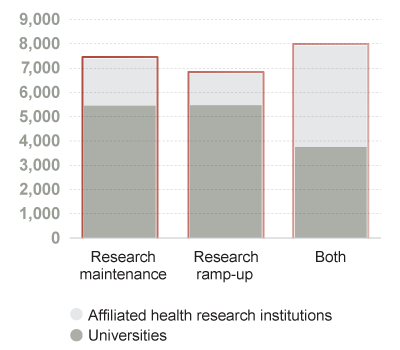
Description of graph
| Distribution of funds by project type | |||
|---|---|---|---|
| Research maintenance | Research ramp-up | Both | |
| Affiliated Health Research Institutions | 2,100 | 1,500 | 4,200 |
| Universities | 5,400 | 5,400 | 3,800 |
Through the Canada Research Continuity Emergency Fund, the Government of Canada supported about 22,000 research projects to cover unanticipated maintenance and ramp-up costs due to the COVID-19 pandemic.
Priority: Increasing engagement in interdisciplinary, international, high-risk / high-reward, rapid-response research
Swift action to drive discovery
COVID-19 demanded new knowledge quickly. Alongside the range of actions taken individually by the granting agencies, CRCC members drew on the New Frontiers in Research Fund (NFRF) to support a rapid call for research on key issues. The NFRF awarded $7 million to 15 interdisciplinary projects focused on everything from point-of-care diagnostics and community resilience to harnessing human mobility and surveillance data for disease forecasting.
To ease financial challenges for research teams and help sustain their work, top-up grants and one-year extensions were offered to 2018 Exploration stream grant holders (all early career researchers [ECRs]) and to 2019 Exploration stream projects, 37% of which were led by ECRs. EDI and the support of ECRs are core elements of the program.Footnote 1
Business as (un)usual
Alongside these urgent actions, the NFRF continued to carry out its planned granting program throughout the year. The results of the 2019 Exploration stream competition were announced in May 2020, with $46.3 million awarded for 186 grants. The 2020 Exploration stream competition led to another $29 million awarded for 117 grants in March 2021.

Linda Zhang
NFRF-funded project with Ryerson University: Spaces Beyond Imagination: Therapeutic virtual reality co-creation for community empowerment through architecture
Photo credit: Linda Zhang
Interior design professor Zhang and her collaborators from the Ryerson-led project PROTECH will create a virtual reality (VR) platform that will allow communities to collaboratively visualize and virtually shape their own neighbourhoods. The project, through an interdisciplinary process, will identify the impacts of COVID-19 on marginalized people, and of the exclusion and displacement of racialized communities from the public space. Using VR and 3D building scans, the researchers will use an architecture-driven envisioning process to transform how communities and identities are built and mobilized, as well as strengthen resilience to promote social justice and equity.
While the Exploration stream focuses on bold, high-risk, interdisciplinary projects, last year the first NFRF Transformation stream competition was launched to support large-scale, world-leading projects with potential to achieve real and enduring change. The NFRF received 347 letters of intent as part of the first Transformation call, with 31 proposals invited to the full application stage. In the International stream, 12 applications were submitted to the 2020 Horizon Global Platform Competition, which provides funding to members of the Canadian research community participating in large, international projects funded through the European Union’s Horizon 2020 program.
Making data visible
1,772 people
117 high-risk, high-reward, interdisciplinary projects
Exploration 2020-21
In November 2020, an interactive dashboard of NFRF competition information was launched in line with the federal government’s commitment to transparency and active communication. The dashboard gives an at-a-glance, customizable view of NFRF funding allocations to date in response to 2,222 research applications involving 556 organizations, with 343 awards.
Priority: Supporting early career researchers
Continuity for Canada’s next generation of research talent
Many ECRs and their work suffered acutely from lost access to research facilities and resources as a result of the COVID-19 crisis. The situation was particularly complicated for those with caring responsibilities. Coordinated efforts across the three federal research funding agencies were made to ease the financial implications for them, at a critical time in their careers, and help safeguard Canada’s next generation of research talent.
Recognizing the unique challenges and importance for researchers to establish a strong track record early in their careers, each agency introduced ways to recognize the disruptions caused by the pandemic when determining ECR status—effectively extending ECRs’ access to funding equalization measures in their flagship programs.
NSERC and SSHRC both included COVID-19 as an eligible delay in research in new proposals and extended the period of time over which grant funds could be used for existing awards by one year. NSERC also offered one-year funded extensions to all active Discovery Grant holders, including ECRs. Both NSERC and SSHRC committed to keeping COVID-19 considerations in place for 2021-22. CIHR extended eligibility by one year for anyone with ECR status as of March 1, 2020, or who secured their first academic appointment after that date. CIHR also extended the Authority to Use Funds period for all active grants by one year. NSERC and SSHRC took similar action, allowing academic institutions to approve extension requests of up to 12 months for grants ending between February 1, 2020 and March 31, 2021.
As part of overall federal support for postsecondary students and recent graduates, the three agencies allocated an extra four months of funding for scholarships or fellowships scheduled to expire between March and August 2020 and provided three months of funding to support trainees and research support staff paid through grants. The NRC created 56 postdoctoral fellowship opportunities to help ECRs facing hardships during the pandemic and give them opportunities to advance their careers.
A diverse new generation
2 objectives of the Tri-Agency ECR Action Plan: Fair Access to Tri-Agency Research Support and Equitable Participation in the Research SystemFootnote *
ECRs represent a diverse new generation of curiosity-driven individuals, creative, team-spirited, socially minded champions of research who connect Canadian communities to people around the world. The research funding agencies provided emergency and ongoing support for their careers during 2020-21.
Priority: Enhancing interagency cooperation on international research
A global enterprise
International collaboration extends the reach of Canadian research, creates avenues for new investigation, and helps tackle major social and scientific challenges—including those brought on by COVID-19. In the face of the pandemic, CRCC member organizations reached out to international partners and came together on new initiatives.
CRCC member organizations came together to support Steven Hoffman, scientific director of the CIHR Institute of Population and Public Health, and his team, working to develop the UN Research Roadmap for the COVID-19 Recovery. The Roadmap sets priorities and provides a framework for interdisciplinary, international cooperation that supports equitable socio-economic recovery and continued progress toward the United Nations’ Sustainable Development Goals.
At the same time, the CRCC reached out to the United Kingdom’s Research and Innovation (UKRI) to reinforce the longstanding science and technology relationship between Canada and the UK. Meeting with Dame Ottoline Leyser, chief executive of UKRI, in October 2020, CRCC members discussed their interests in the UN Research Roadmap and pandemic preparedness, and reaffirmed a shared commitment to advancing EDI in international research. At the meeting, the CFI entered into a formal agreement with the UK Science and Technology Facilities Council to facilitate access to research infrastructure.
A coordinated approach
Behind the scenes, a CRCC advisory subcommittee on international interagency cooperation recommended approaches to international collaboration that helped inform discussion at the CRCC-UKRI meeting. Building on that experience, CRCC member organizations worked with the CRCC secretariat to develop guidelines for a consistent and replicable “Team Canada” approach to the organization of future meetings with international research funding organizations.
Working with EU colleagues
“Team Canada”
First international CRCC meeting
To support Canadian participation in large, international research projects, the NFRF awarded grants to Canadian research teams engaged in European Union Horizon 2020 projects on topics ranging from vaccine hesitancy to inorganic contaminants capturing and “energy citizenship.”
Priority: Strengthening Indigenous self-determination, leadership and capacity in research and training
Reconciliation through research
Peer review is an integral part of the traditional academic granting process, but it can create barriers for Indigenous communities, organizations and teams seeking to engage in research. Last year, Canada’s federal research funding agencies launched a pivotal new partnership with Indigenous researchers to make peer review processes more culturally appropriate, inclusive and relevant to Indigenous communities.
In 2020-21, Canada’s federal research funding agencies moved toward implementing a strategic plan co-developed with Indigenous Peoples: Setting New Directions to Support Indigenous Research and Research Training in Canada 2019–2022. The plan identifies four key principles: self-determination, decolonization of research, accountability, and equitable access. It provides a holistic framework for an interagency approach to strengthening Indigenous research capacity.
An important first step, taken in concert with Indigenous Peoples, was the creation of the external—exclusively First Nations, Inuit and Métis—Reference Group for the Appropriate Review of Indigenous Research. The reference group’s 18 members were chosen by a committee of distinguished Indigenous academics, bringing together a broad range of experience and expertise. They include youth, Knowledge Keepers and academics at various stages of their careers. Going forward, the group will evaluate peer review models across Canada’s federal research funding agencies, and make recommendations on new methodologies to integrate Indigenous knowledge systems and ways of knowing into review practices.
Indigenous leadership in research
Following on the successful launch of the reference group, a similar process is underway to select membership for the Indigenous Leadership Circle in Research. The circle will advise senior management on the implementation of the strategic plan and matters related to Indigenous research. Canada’s federal research funding agencies will welcome members of the new advisory circle in the months ahead.
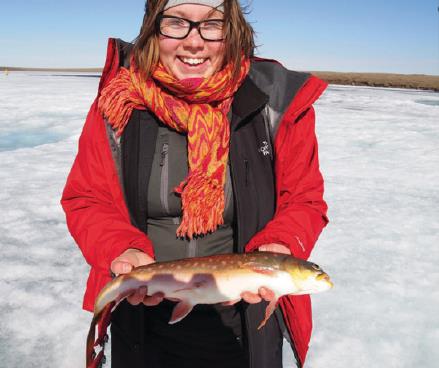
Dr. Zoe Todd, Paulatuuq, Northwest Territories, 2012
NFRF-funded project with Carleton University: Plural perspectives on Bighorn Country: restor(y)ing land use governance and bull trout population health in Alberta
Photo credit to: Andy Thrasher
We have responsibilities to be reciprocal and thoughtful in how we move through the land and in how we behave as humans. We have impacts, every one of us, and that means we are obligated to reflect on how we can best nurture the planet and be just to the species we share our space with. We must acknowledge the ways we are embedded in webs of relations.
Laying the foundation for change
18 Indigenous members
appointed to the Reference Group for the Appropriate Review of Indigenous Research
In line with the strategic plan, Canada’s research funding agencies have begun addressing administrative barriers, reviewing funding opportunities and creating governance structures to support progress toward reconciliation through research.
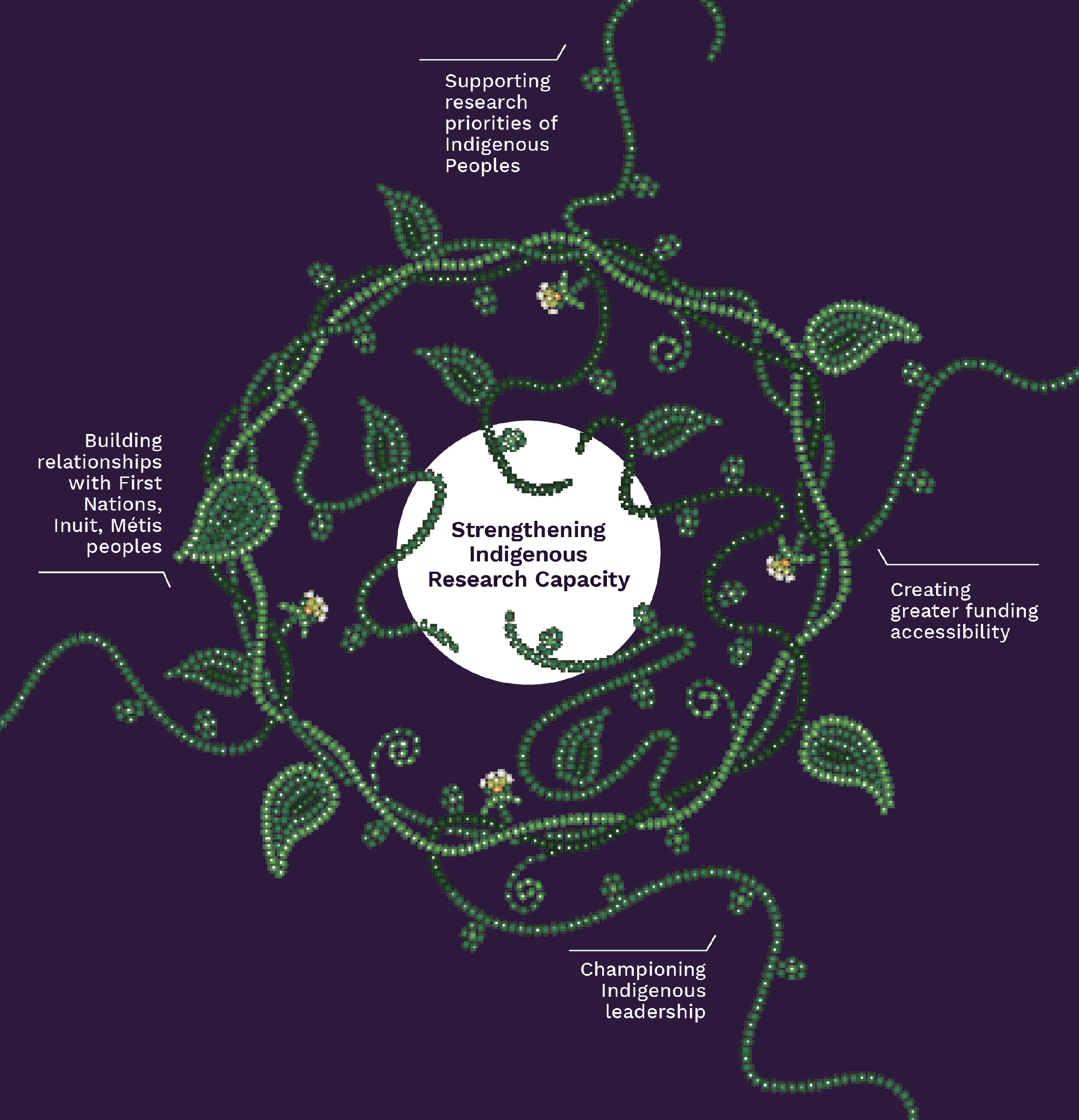
Description of image
A purple diagram with beaded artwork depicting vines encircling the centre objective: Strengthening Indigenous Research Capacity. Four proposed key strategic directions reflect new models for Indigenous research and research training.
- Supporting research priorities of Indigenous Peoples
- Creating greater funding accessibility
- Championing Indigenous leadership
- Building relationships with First Nations, Inuit, Métis peoples
Four proposed key strategic directions reflect new models for Indigenous research and research training.
From the Strategic Plan: Setting new directions to support Indigenous research and research training in Canada 2019–2022
Artwork by: Donald Chrétien
Priority: Strengthening equity, diversity and inclusion in research
An action plan for equitable opportunity
A growing body of evidence shows that embedding EDI in research drives better results. It’s also clear that much remains to be done to make Canada’s research system truly equitable. In working toward publishing the Tri-Agency EDI Action Plan for 2018-2025, Canada’s federal research funding agencies took steps to increase participation of racialized minorities, Indigenous Peoples, persons with disabilities and women in Canada’s research system.
Fair access to tri-agency support
Since 2018, researchers seeking tri-agency funding have responded to a self-identification questionnaire to help each agency monitor the diversity of participants in its programs and design new measures to help achieve greater EDI in the research ecosystem. Last year, the agencies added new questions on sexual orientation and language; the questionnaire now covers eight dimensions of identity, including age, gender, disability, Indigenous identity and identification with a visible minority.
CIHR published baseline, disaggregated questionnaire data on its Project Grant and COVID-19-related competitions, while SSHRC and NSERC made data available through interactive dashboards. In 2021-22, all three agencies will implement the revised questionnaire across their respective application platforms. The resulting data will allow them to assess underrepresentation in their programs, and systemic barriers in their policies and practices, in more detail and more consistently.Footnote 2
Equitable participation in research
In 2020-21, 15 more postsecondary institutions and other research organizations signalled their commitment to embed EDI principles in their policies, practices and culture, by signing the Dimensions charter—bringing the total number of signatories to 125. The agencies continued to work closely with 17 postsecondary institutions on the Dimensions pilot program to develop ways to advance and publicly recognize institutional efforts to increase EDI in the postsecondary sector. A Dimensions handbook, to help guide institutional efforts, is currently being developed.
The three agencies also announced the recipients of a second round of Equity, Diversity and Inclusion Institutional Capacity-Building Grants to help postsecondary institutions identify and eliminate systemic barriers to recruiting, advancing and retaining researchers from underrepresented and/or disadvantaged groups.
Finally, significant progress was made toward realizing EDI objectives for the Canada Research Chairs Program as set out in the 2019 Addendum to the 2006 Canadian Human Rights settlement agreement. The program reached historic highs in the representation levels and nomination rates for members of racialized minorities, Indigenous Peoples, persons with disabilities and women—marking important progress toward Canadian population-level representation of these groups within the program.
Embedding EDI
125 organizations
have signed the Dimensions charter
To further ensure fair access to research support, the granting agencies increased the diversity of their advisory and governance boards, and the executive heads of CIHR, NSERC and SSHRC issued a public statement regarding the importance of enhancing EDI in their agencies, in academic institutions and across the research enterprise.